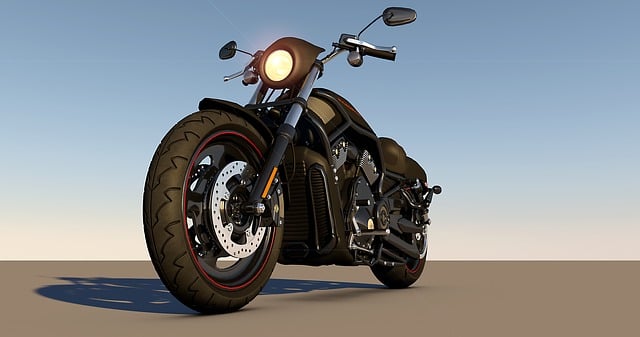Do you have an old, broken-down motorcycle that’s been sitting in your garage for years? You may be wondering how much you could get for scrapping it.
Well, the amount of money you can get for scrapping a motorcycle varies depending on several factors — the make and model of the bike, its condition, where you take it to scrap, and more.
But with some research and preparation, you can maximize the value of your scrap metal and turn it into cold hard cash. Imagine taking that extra money from scrapping your motorcycle and using it to buy a newer model or upgrade your current ride!
Whether you’re looking to start fresh or just hoping to get a bit of extra cash for an old bike, here’s what you need to know about scrapping a motorcycle.
Key Takeaways
- The amount of money you can get for scrapping a motorcycle depends on factors such as make, model, condition, and scrap laws.
- Researching local scrap laws and regulations is crucial for getting the best price.
- Recycling parts from old vehicles reduces pollution and offers financial incentives in many countries.
- Maximizing scrap value can be done by considering alternative uses for parts, calculating repair costs, researching local scrap yard prices, and looking for additional income sources.
Factors That Affect Scrap Value
The amount you can get for scrapping your motorcycle depends on a few different factors. These factors include the age, make, and model of the motorcycle, as well as scrap laws in your area and the environmental impact.
Depending on where you live, certain scrap laws may apply. These laws determine how much money you can receive for your scrapped vehicle.
Additionally, if the motorcycle is an older model or has any hazardous materials such as lead batteries or antifreeze, this could have an effect on the price.
Environmental impact is also a factor to consider when scrapping a motorcycle. Recycling parts from old vehicles reduces pollution and helps conserve resources. As a result, many countries offer financial incentives for those who responsibly recycle their vehicles.
Ultimately, researching local scrap laws and regulations is key to ensuring you get the best possible price for your scrapped motorcycle.
Where to Sell Your Motorcycle for Scrap
Heading to a junkyard could be a jolly journey for your scrapped steed. Selling your motorcycle for scrap can be an easy way to make some extra cash, provided you know where to look.
You could go the traditional route and take it to your local junkyard, where they should offer cash offers based on the weight of the vehicle. Alternatively, you could try online auctions or classifieds, which are becoming increasingly popular ways of getting rid of unwanted vehicles. However, this route usually yields lower prices as buyers will be looking to purchase at a discount and may not pay full scrap value.
Research the current market conditions before deciding which option is best suited for you and your bike. Whether it’s through a junk yard or online auction – get ready to say goodbye and start counting that cash!
Preparing Your Motorcycle for Scrapping
Before scrapping your motorcycle, you’ll want to make sure all of its parts are ready to go. This is important for both safety and environmental concerns.
Make sure the engine has been drained of oil and gas, any liquids have been removed from the cooling system, and any components that include hazardous materials have been safely disposed of.
Additionally, if possible, disconnecting the battery and other electrical connections can help limit the impact on the environment when scrapping your motorcycle.
You should also inspect all parts and remove anything that could be reused in another vehicle or sold separately, as this will help maximize the amount you get for scrapping your motorcycle.
Tips for Maximizing Your Scrap Value
To maximize the scrap value of your motorcycle, you’ll need to go above and beyond – it’s almost like striking gold! Here are some tips to help you get the most out of scrapping your bike:
- Consider alternative uses for parts before scrapping: selling them on their own could yield more money than scrapping them.
- Calculate the cost of repairs versus the estimated scrap value – sometimes repairing a part can add substantial value, even if it still ends up getting scrapped.
- Research local scrap yards ahead of time to get an idea of prices in your area. Compare these with online options as well.
- Look for additional sources of income from non-monetary items such as metals or fluids that may have economic value when recycled.
With a little effort and research, you can maximize the overall financial return on your motorcycle scrap project.
Understanding Scrap Pricing
When it comes to understanding scrap pricing, it’s important to know the difference between non-ferrous and ferrous metals.
Non-ferrous metals are valuable because they contain no iron, making them more resistant to corrosion and oxidation.
On the other hand, ferrous metals contain iron, making them cheaper than their non-ferrous counterparts.
Knowing these differences can help you get a better price for your scrap metal when scrapping a motorcycle.
Non-Ferrous Metals
Scrapping a motorcycle can yield a decent return on non-ferrous metals, like copper and aluminum. Non-ferrous metals are valuable because they’re recyclable and have higher recycling rates than ferrous metals. To get the most for your scrap metal from a motorcycle, consider these factors:
- Use a scrap value calculator to determine the current market rate of non-ferrous metals in your area.
- Collect all the non-ferrous parts from the motorcycle before scrapping it.
- Separate any steel or iron parts that may be associated with the non-ferrous metal.
- Consider selling individual parts through online auctions or other forums.
By understanding how to maximize your returns on non-ferrous metals when scrapping a motorcycle, you can get top dollar for your scrap metal.
Ferrous Metals
| Ferrous metals, like iron and steel, can provide a solid return when salvaged from a motorcycle scrap. Scrap metal recycling laws dictate that ferrous metals are separated from non-ferrous metals before being processed for recycling. | Ferrous Metal | Value |
|---|---|---|
| Iron | High | |
| Steel | Medium | |
| Cast Iron | Low |
Knowing the different types of ferrous metals and their respective values helps ensure you get the most out of your scrap motorcycle parts. Further, understanding local regulations surrounding scrap metal recycling can help you maximize profits while also staying within legal boundaries.
Tracking Your Motorcycle’s Scrap Value
Knowing what your motorcycle’s scrap value is can be tricky, but don’t worry—you’ve got this! To understand how much you can get for scrapping a motorcycle, there are three key steps to follow:
Research:
- Gather information about local regulations and environmental requirements.
- Look up the current scrap prices of ferrous metals.
Evaluation:
- Assess the condition of your motorcycle, including parts that may still have some value.
- Determine the best scraping techniques to use in order to maximize profits.
Negotiation:
- Reach out to potential buyers and negotiate a fair price for your scrap material.
By following these steps, you will be able to track your motorcycle’s scrap value and make sure you get the most out of it. With proper knowledge on scraping techniques and environmental regulations, you can ensure that you receive an appropriate amount for your metal parts.
Legal Requirements for Scrapping a Motorcycle
Navigating the legal requirements of scrapping a motorcycle can be complex, but it’s essential to ensure you’re in compliance with local and environmental laws. Depending on your location, you may need to obtain scrap permits or adhere to certain environmental regulations when disposing of your bike.
Make sure to do your research and find out exactly what paperwork is required for scrapping a motorcycle in your area. It’s also important to know that some states require you to provide proof of ownership before disposing of the vehicle. If this is the case for you, make sure you have all necessary documents ready before starting the process.
Additionally, if there are any hazardous materials associated with your vehicle – such as lead-acid batteries or oils – they must be disposed of separately according to state guidelines. Taking these steps will help you get through the scrapping process successfully and legally.
Frequently Asked Questions
Does scrapping a motorcycle damage the environment?
Scrapping a motorcycle can be like an avalanche: its environmental impact can be immense. Recycling parts and materials helps to reduce emissions, but without proper disposal of toxic waste the environment could suffer long-term damage. Therefore, it is important to consider how scrapping a motorcycle affects the planet before taking action.
Is there a minimum age requirement to scrap a motorcycle?
You must be 18 or older to scrap a motorcycle in order to adhere to vehicle safety and emissions regulations. Scrapping a motorcycle safely is important for protecting both people and the environment.
Are there any taxes or fees associated with scrapping a motorcycle?
You may face recycling costs and fees when scrapping your motorcycle, so be sure to look into the details. Scrap parts can vary in value depending on their condition, so it’s important to consider this when making decisions.
Can I donate my motorcycle for scrap instead of selling it?
Yes, you can donate your motorcycle for scrap instead of selling it. There are alternative uses for scrap motorcycles such as charitable donations to those in need. Scrapping your bike can be a great way to help others while also getting rid of an unwanted vehicle.
Is there a maximum value for scrapping a motorcycle?
Sell your motorcycle for scrap and you’ll get the best value. Scrap costs vary, but you won’t be disappointed with the selling value. Analyze the current market to ensure you’re getting a fair deal.
Conclusion
You’ve come to the end of your motorcycle scrapping journey and now you know how much you can get for it.nnYou understand the factors that affect scrap value, where to sell it for scrap, how to prepare it, tips for maximizing its worth, and how to track its price.nnWith this knowledge in hand, you’re confident in getting the best deal possible while also adhering to any legal requirements.nnNow all that’s left is for you to get scrapping!



